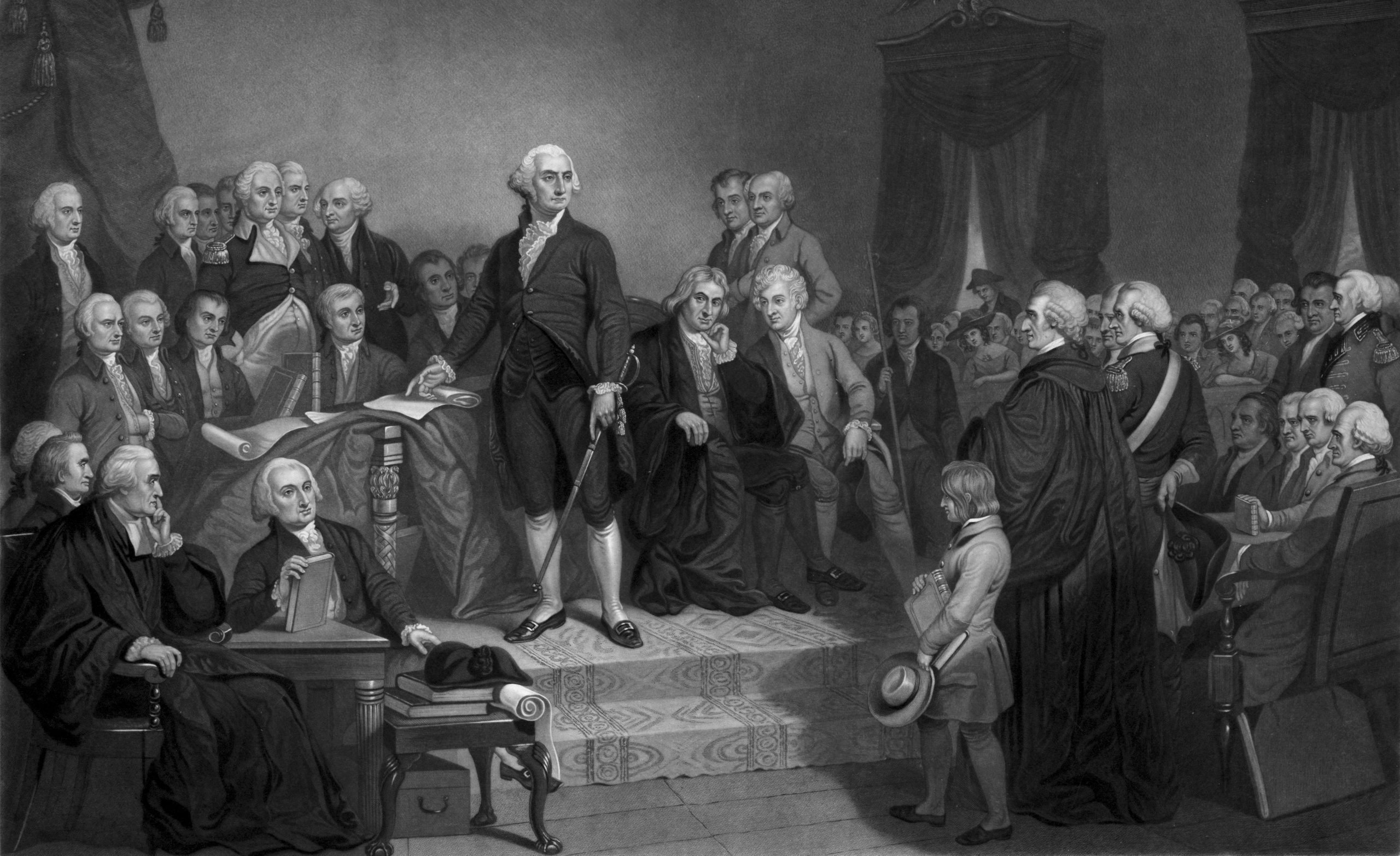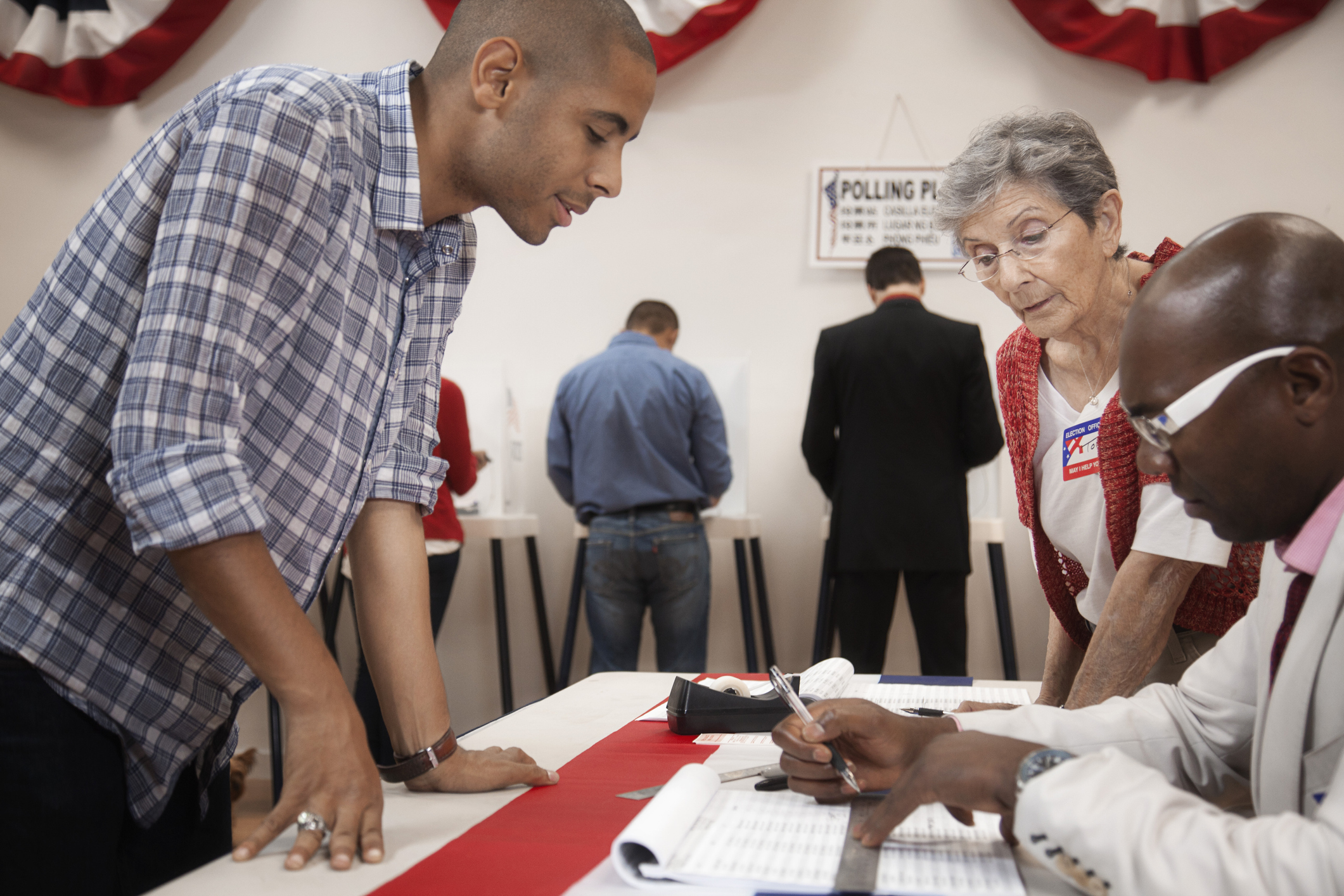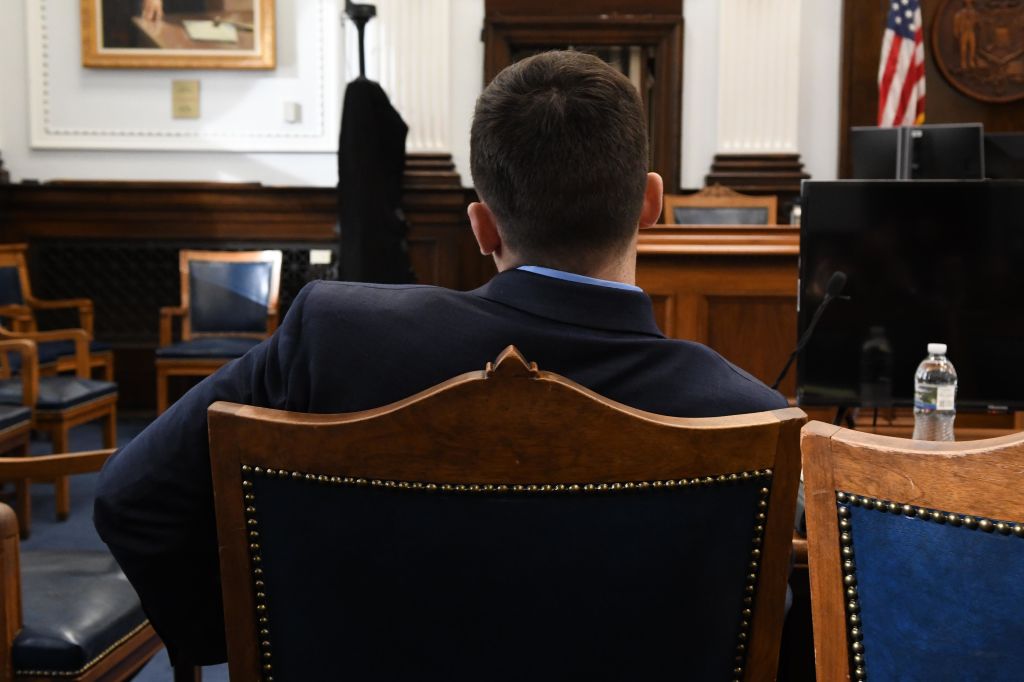It's not actually about Rittenhouse.
The Founders and Nationalism

Remarks from National Conservatism II
Because of the remarkable fact of America’s well-documented and historically proximate Founding, national identity and any nationalism take on a peculiar character here. A self-conscious and distinct American people felt its identity grow in revolution and war. And its appeal to legitimacy in that revolution was based on a set of principles asserted as true simply or by nature (and with divine sanction, it was asserted), rather than as a peculiar cultural inheritance.
In practice, for many years after the Declaration of Independence, America retained the spirit of a confederacy rather than a nation. The national political infrastructure, the Articles of Confederation, didn’t offer much to admire by way of effective national administration or competence. The Constitution was of course the most sophisticated and lasting step towards a remedy. It was a considerable consolidation and centralization of power necessary both to protect rights more effectively and to put in place the conditions for a more unified, competent, and less embarrassing national presence on the international stage.
This remedy was also advanced by and bound up with one party, The Federalists, and one preeminent man, George Washington. That party and that man, in handling domestic and foreign policy crises in the 1790s, helped to forge a kind of self-conscious and self-confident American national identity. This is a wrinkle in America’s small-L liberalism that’s worth pondering. As my colleague Charles Kesler has pointed out in his excellent book, The Crisis of the Two Constitutions:
In John Locke’s Second Treatise, the classic statement of the contract theory, there is little role for Founding Fathers, really, inasmuch as they might represent a confusion of political power and paternal power, two things that Locke is at great pains to separate. He wants to make clear that political power, which arises from consent, has nothing to do with the power of fathers over their children. And so, against the arguments of absolutist patriarchal monarchy, he attempted clearly to distinguish paternal power from contractual, or political power. But in the American case we have combined these, to an extent, almost from the beginning. The fathers of the republic are our demi-gods, as Thomas Jefferson, of all people, called them.
By the time that Washington and the Federalists were defeated and partially eclipsed at the end of the 1790s, national identity and pride had been fused to the cause of the Constitution and constitutionalism.
Some of this was expressed well in an essay last summer by our host Yoram Hazony and his colleague Ofir Haivry in The American Conservative called “American Nationalists.” It rehearsed a lot of this history, but it made some errors that we need to correct to get a proper sense of the Nationalism of the American Founding—and, importantly, what it means for us today.
Hazony and Haivry set, for the purpose of illustration, the nationalist, Anglo-Protestant Hamilton and the Federalists against the universalist, liberal, and rationalist Jefferson and his Democratic-Republicans.
The argument goes that Hamilton was essentially a Burkean advocating the rights of Englishmen and the common law, and Jefferson was the Lockean purist. Washington was with Hamilton in this dichotomy, a partisan of the “new nationalist constitution […] a restoration of the Anglo-American political inheritance that Washington and many of his supporters and officers had in fact been fighting to preserve during the War of Independence.”
Jefferson, on the other hand, was a proponent of the individual, and even radical individualism, of a “‘creedal nation’ bound by nothing other than reason and consent.”
But this clean division between the proponents of Lockean creed and Burkean culture doesn’t survive scrutiny of what the American Founders did and said. Indeed, Hazony and Haivry quote George Washington’s Farewell Address, where he identifies the salutary fellow-national-feeling of Americans being rooted in “the same religion, manners, habits and political principles.” So: culture, and creed; matter and form.
Washington certainly had no trouble speaking the language of liberalism and natural rights. This is him in 1790, writing to the Hebrew Congregation in Rhode Island:
The Citizens of the United States of America have a right to applaud themselves for having given to mankind examples of an enlarged and liberal policy: a policy worthy of imitation. All possess alike liberty of conscience and immunities of citizenship. It is now no more that toleration is spoken of, as if it was by the indulgence of one class of people, that another enjoyed the exercise of their inherent natural rights.
Or take Hamilton, for that matter, writing in 1775 in “The Farmer Refuted,” where he’s as comfortable citing Locke as he is Blackstone; natural rights and social compact on one hand, and the common law on the other.
The adoption of the common law by U.S. Courts is an additional data point brought up by Hazony and Haivry as evidence of the Anglo-Protestant character of American nationalism in the 1790s—but it’s notable that the common law, when adopted by courts or incorporated into constitutions, was always adopted with an asterisk, either explicitly or implicitly and as a matter of common sense: any part of the common law contrary to the “principles of the revolution” (their phrase, not mine) would not be valid.
This was especially true about citizenship, a foreign concept to the English common law in the 1790s, as all Englishmen were subjects, not citizens, and owed “perpetual allegiance” to the British crown. This was seen as incompatible with the more Lockean and social compact view of citizenship on this side of the Atlantic, a citizenship based on natural rights and natural liberty and government by consent.
And so the question of creed versus culture, natural rights versus the particular facts of the American people and their inherited rights, privileges, or traditions is not so clean.
Indeed, in a larger sense, the “creed versus culture” argument at the Founding presented by Hazony and Haivry overlooks the palpable fact that the political-revolutionary project of the American Founding, in a grand or Aristotelian sense, was to use a new creed as justification to break the culture of British Anglo-Protestantism and to start a new American-nationalist political culture—borrowing from the salutary institutions and practices of Englishmen to be sure—but nonetheless offering a novus ordo seclorum that was to be the basis of political practice and political justice in America.
It is this not wholly new but not at all principally British or Anglo-Protestant Americanism that should inform our Founding conception of American nationalism. It was, to borrow a label from my colleague Carson Holloway, a liberal or moderate nationalism, informed by a reasonable assessment of the content and application of natural rights and social compact, rather than merely the product of the particular attachments of birth, inherited privileges, religious attachments, or positive law (however ancient and sacred).
And this important principled or theoretical component of American nationalism, nascent in the hearts and minds of the political community after the Revolution, was fused with the cause of the Constitution itself when the leading political men of the 1790s defended, and vindicated the interests and honor of the American nation and her citizens against domestic insurrection and foreign meddling and intrigue.
In the 1790s, both Citizen Genet, acting as French envoy to the U.S. on behalf of the Girondins, and after him Talleyrand, Minister of Foreign Affairs under the Directory, made the error of thinking that they could pit pro-French and pro-British American domestic factions against one another to serve France’s designs—only to run into a fierce American national sense of pride that transcended in the decisive sense any domestic partisan disagreements.
The reason I’ve dwelt so long on this correction about American Founding nationalism is because it forms a peculiar kind of liberal nationalism, bound up with an American constitutionalism that held considerable sway through the turn of the twentieth century and shows signs of enduring appeal even today.
And the small-L liberal part of American nationalism is likely to provide greater appeal to new multi-ethnic coalitions in modern America than more historically contingent or anachronistic appeals to Anglo-Protestantism or Anglo-Americanism, no matter the virtue of these amalgams—as considerable as they are.
The most institutionally and culturally dominant alternative to American nationalism today is the ideology of multiculturalism or supposed “anti-racist” liberalism, or wokeism (as the kids say), offered by the American Left. It insists that both the American Founding’s creed and culture, or any nationalist fusion of them, are evil because the Founders were racist, sexist, homophobic, imperialist, transphobic, etc.
Modern leftism indicts as white supremacist the equal protection of the law that was the original creedal promise of the principles of the American Founding. It has used the administrative bureaucracy, sunk deep by over a century of progressive liberalism—and super-charged by a perversion of the spirit of the 1964 Civil Rights Act and its poisoned progeny—to enact and enforce a new regime of racial and identity politics balkanization that is increasingly irrational and despotic.
The pathologies of wokeness now infect, at the highest and most elite levels, our educational, military, political, corporate, and even religious institutions.
And so, conservatives and the American right must acknowledge the monumental political and intellectual task before us. After over a century of progressive liberalism, the Right must adopt the spirit of a counter-revolutionary movement, with a sense of urgency and creativity—and without abandoning a spirited and latitudinarian constitutionalism. The Founders’ common-sense—rather than dogmatic or overly proceduralist—nationalism offers plenty of guidance and inspiration.
We ought to be flexible, confrontational, and experimental. And we ought to acknowledge the peculiar fact of our national polarized politics: in the face of a sclerotic, half-competent, and yet dishonest, entrenched, and corrupt federal establishment, the cause and contours of a sober-minded American nationalism may only be meaningfully advanced by leaders at the state level.
We can be encouraged by the demonstration of recent months in fights over education: a certain kind of so-called culture war, waged on behalf of the freedom of the mind and integrity of soul of our youngest citizens, and in defense of an American civic history and identity that is noble, inspiring, just, and a source of pride, may be the beginning of a return to that nationalism that started a young America on a path to greatness.
The American Mind presents a range of perspectives. Views are writers’ own and do not necessarily represent those of The Claremont Institute.
The American Mind is a publication of the Claremont Institute, a non-profit 501(c)(3) organization, dedicated to restoring the principles of the American Founding to their rightful, preeminent authority in our national life. Interested in supporting our work? Gifts to the Claremont Institute are tax-deductible.
How America’s biggest crisis killed my nephew.
Accepting our reckoning with our humanity and our technology.
Recent electoral trends indicate significant problems for the Democrat base.
Not a week after his election, Edward Durr is already a legend.
The Ballad of Kyle Rittenhouse






